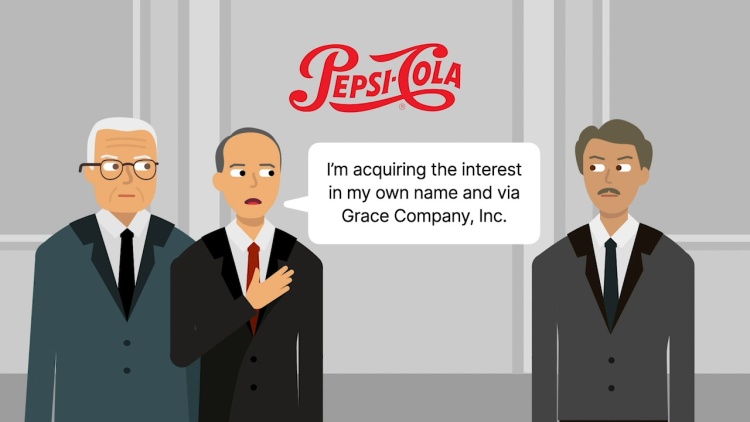Guth v. Loft, Inc.
Delaware Supreme Court
5 A. 2d 503 (1939)

- Written by Rich Walter, JD
Facts
Loft, Inc. (Loft) (plaintiff) derived significant revenue from retail cola sales. Charles G. Guth (codefendant) was Loft's president and dominated its board of directors. Guth and his family also owned Grace Company Inc. (Grace) (codefendant), one of Loft's cola suppliers. A Pepsi-Cola Company (Pepsi) (codefendant) official offered Guth a discounted price on the cola manufacturer's shares. Had Guth bought the shares on Loft's behalf, it could have lowered Loft's cola wholesale supply costs and increased Loft's profits. Instead, without consulting Loft's directors, Guth used Loft's money to buy the Pepsi shares for himself and Grace. Subsequently, Guth managed Loft, Pepsi, and Grace in ways that jeopardized Loft but benefitted himself, Grace, and Pepsi. When Guth's control of Loft's board of directors ended, Loft sued Guth, Pepsi, and Grace for ownership of Guth's and Grace's Pepsi shares. The Chancery Court of New Castle County, Delaware, found that Guth denied Loft the corporate opportunity to acquire Pepsi in Loft's own name and jeopardized Loft without the knowledge or authorization of Loft's directors. As an equitable remedy, the court ordered Guth and Grace to transfer their Pepsi shares to Loft. Guth, Pepsi, and Grace appealed to the Supreme Court of Delaware.
Rule of Law
Issue
Holding and Reasoning (Layton, J.)
What to do next…
Here's why 907,000 law students have relied on our case briefs:
- Written by law professors and practitioners, not other law students. 47,100 briefs, keyed to 996 casebooks. Top-notch customer support.
- The right amount of information, includes the facts, issues, rule of law, holding and reasoning, and any concurrences and dissents.
- Access in your classes, works on your mobile and tablet. Massive library of related video lessons and high quality multiple-choice questions.
- Easy to use, uniform format for every case brief. Written in plain English, not in legalese. Our briefs summarize and simplify; they don’t just repeat the court’s language.





